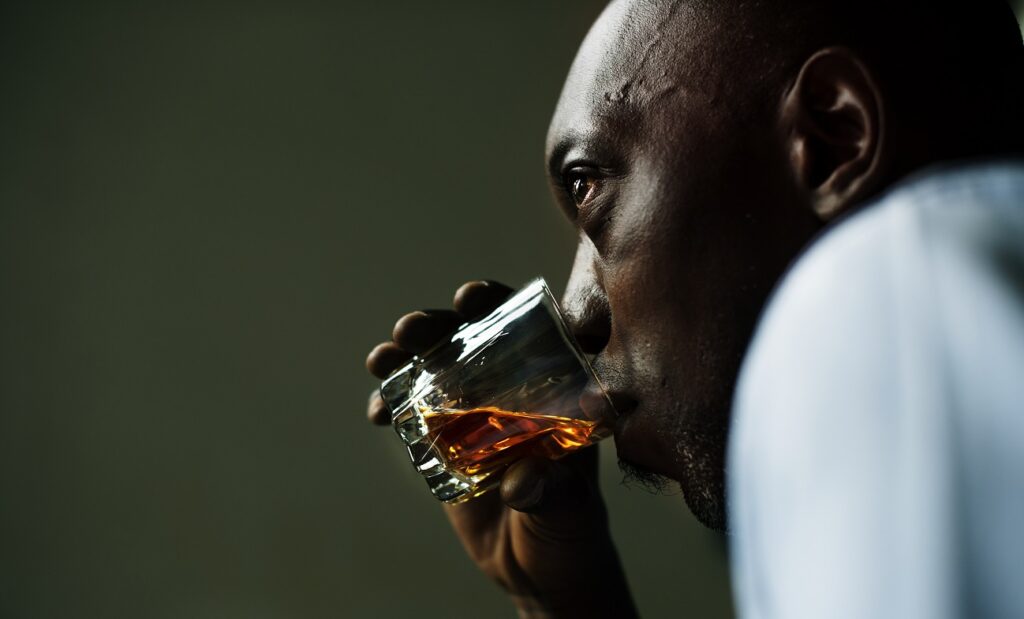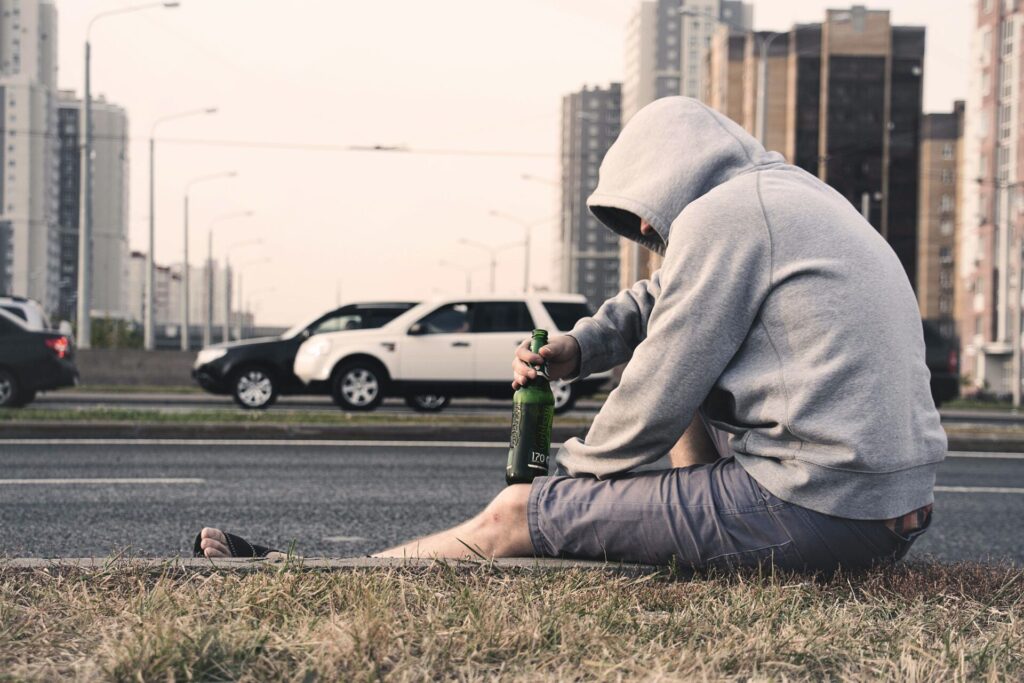- Home
- Get Help for Addiction
- Addiction Help for LGBTQ+ People
Addiction Help for LGBTQ+ People
Substance abuse and addiction is a prevalent and significant problem for the members of the LGBTQ+ community.
It has been shown that LGBTQ+ people are around twice as likely as heterosexual individuals to use illegal drugs or become alcohol dependant.
Common triggers for LGBTQ+ addiction include:
- Discrimination and stigma around sexuality
- Lack of support
- Internalised homophobia
- Anxiety and mental health issues
- Fear of being ridiculed and not accepted
Continuing to live in ‘the closet’, or suffering from unacceptance, hiding sexuality, or not feeling comfortable with it may lead to self-hate, bad mental health and fears of harassment and violence.
Some people have turned to drugs or alcohol as a coping mechanism or to mask their feelings.
Addiction And Mental Health In The LGBTQ+ Community

Alcohol is the most popular choice for members of the LGBTQ+ community, due to its social acceptance in many settings making it much easier to access.
The National Institute on Drug Abuse holds that LGBTQ+ communities are 90% more likely to have prevalent alcohol use for these reasons.
This also includes co-occurring mental conditions, with likely states of depression and severe anxiety.
The levels of self-harm and suicide are much higher than those of a heterosexual nature: minorities are 3 times more likely to attempt suicide, and transgender individuals are at an even greater risk, at 41% having attempted suicide.
Causes Of Addiction In The LGBTQ+ Community

The 2018 National LGBT Survey found that:
- Members of LGBT are less satisfied with their life in the general population. This has a satisfaction rating of 6.5 out of 10, compared to those of heterosexual nature, with a score of almost 8. Transgender individuals scored their satisfaction around 5.4 out of 10.
- More than two-thirds of LGBT members do not hold the hand of their significant other in public out of fear of negative reactions and violence.
- On average, 2 out of 5 members of the LGBT community experience harassment or physical violence. However, 9 out of 10 incidents are not reported as the victims believe it just to ‘happen all the time’.
The office for national statistics’ sexual orientation report from 2019, was a survey of sexual orientation and region, age, marital status and ethnicity.
They found that only 2.7% of the UK population over the age of 16 identified themselves as lesbian, gay, or bisexual.
Despite being an increase from 2.2% in 2018, it is believed that this is not a true reflection of the numbers.
Younger people from the ages of 16 to 24 years are now more likely to identify as LGB, due to the growing social acceptance in some areas.
The likelihood in 2018 was 4.4%, and this grew to 6.6% of the population.
They stated that around 1.4 million people over 16 years old identify as LGB as of 2019, a significant increase from 1.2 million the year before.
How Do I Know If I Am Abusing Alcohol or Substances?

There are many different types of questionnaires designed to clarify whether or not an individual is suffering from substance abuse.
Used by rehab staff and medical professionals around the world, these questions are some of the best ways to figure out if your use of drugs or alcohol is something you will need help to overcome.
CAGE

The CAGE questionnaire is a substance abuse screening tool, to help identify negative habits regarding drugs and alcohol.
CAGE questions can be summed up as:
- Have you ever felt you should cut down on your drinking?
- Have people annoyed you by criticizing your drinking?
- Have you ever felt bad or guilty about your drinking?
- Have you ever had a drink first thing in the morning to steady your nerves or to get rid of a hangover?
This is scored on a YES (1) or NO (0) basis, and scoring over 2 is deemed to be clinically significant and can suggest harmful drinking or drug use.
FAST

The FAST questionnaire is a development of alcohol screening tests, originally produced to aid emergency departments and A&E.
Once you have answered the first 4 (out of 10) questions, if you score ‘fast+’, you ought to take the next set of questions upon yourself, in order to correctly identify if you have a dependency on alcohol.
The Alcohol Use Disorders Identification Test forms the first stage of this test, with the questions:
- How often have you had 6 or more units if female, or 8 or more if male, on a single occasion in the last year?
- How often during the last year have you failed to do what was normally expected from you because of your drinking?
- How often during the last year have you been unable to remember what happened the night before because you had been drinking?
- Has a relative, friend, doctor or other health worker been concerned about your drinking or suggested that you cut down?
If you score ‘fast+’ which is over a score of 3, you must complete the next subset of questions:
- How often do you have a drink containing alcohol?
- How many units of alcohol do you drink on a typical day when you are drinking?
- How often during the last year have you found that you were not able to stop drinking once you had started?
- How often during the last year have you needed an alcoholic drink in the morning to get going after a heavy drinking session?
- How often during the last year have you had a feeling of guilt or remorse after drinking?
- Have you or somebody else been injured as a result of your drinking?
Drug Questionnaires

There are several particular questionnaires for drug use, involving your drug use over the recent 12 months.
In this case, ‘drug abuse’ refers to the use of drugs (over the counter, prescription or illicit) in excess.
- Have you used drugs other than those required for medical reasons?
- Do you abuse more than one drug at a time?
- Are you unable to stop using drugs when you want to?
- Have you ever had blackouts or flashbacks as a result of drug use?
- Do you ever feel bad or guilty about your drug use?
- Does your spouse (or parents) ever complain about your involvement with drugs?
- Have you neglected your family or relationships because of your use of drugs?
- Have you engaged in illegal activities in order to obtain drugs?
- Have you ever experienced withdrawal symptoms (felt sick) when you stopped taking drugs?
- Have you had medical problems as a result of your drug use (e.g., memory loss, hepatitis, convulsions, bleeding)?
Each yes response is scored as a 1, adding up to:
- 0= no problems reported
- 1-2 = low level
- 3-5 = moderate level
- 6-8 = substantial level
These levels relate to the degree of problems related to drug use, determining when investigation and assessment should be sought out.
How To Help Members of the LGBTQ+ Community

- Listen and positively reinforce: If someone opens up to you about it, ask open-ended questions and listen to what they have to say. Let them know you are on their side and that you will do anything to help and support them.
- Stand up to bullying, comments, harassment: If you, or someone else experiences harassment or bullying, stand up against it. This includes people’s remarks or comments about LGBTQ, when they believe nobody is listening so ‘it doesn’t matter’.
- Be a role model for kindness and inclusion: Show others what it is to be a leader for kindness and future generations. We are aiming for inclusivity and equality, in totality.
- Show them they can be themselves: Most LGBTQ+ members normally mask their true identity when they are around new people or are not completely comfortable. Show them they can be themselves, even if that means wearing something matching with them that you know they want to wear, but won’t wear out of fear of rejection.
- Create a safe space: Make your space a safe space, where homophobic language, behaviour, and comments will not be tolerated.
- Stay informed and fight for rights: The fight for equality will be a fight for a long time. We have come a long way, but there is still a long way to go. This may involve voting, marches (pride) and other activities.
- Don’t make assumptions about sexuality, gender or identity: Sometimes people may remain unsure about their own identity, so don’t make assumptions for them, or push them to choose a category. Whether they choose or not has no relevance to you.
Being an ally to those in the LGBTQ+ community means someone that is in full support and will have complete backing.
An ally can be LGBTQ+, or not, but it just means they will speak out against discrimination, including violence, homophobia and inequality.
By playing your part in supporting the LGBTQ+ community, you are helping contribute to the forward drive towards acceptance and equal rights.
Getting Help Today

Substance abuse is a problem that continues to plague all of us, whether LGBTQ+ or otherwise.
If you are concerned about your own substance use, or are concerned for a loved one, do not hesitate to reach out.
The first step is usually the most difficult, but it can be the key to living a life free from addiction.
Whatever support you need, Rehab Recovery is here for you.


